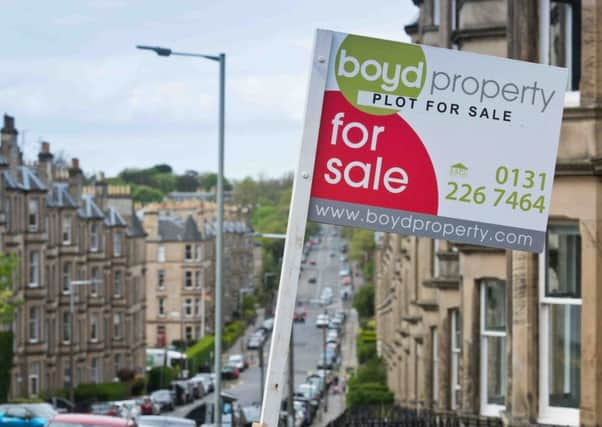Don’t believe the hype on house prices


Most, although shamefully not all, of the articles and news reports about the hike in prices pointed to the new Land and Building Transaction Tax being at least “partly” or “a contributing factor” behind the figures.
But from these reports it was still very easy for the owner of an average property to deduce that in March its value increased by £9,200.
Advertisement
Hide AdAdvertisement
Hide AdThe new tax makes higher priced property transactions more costly. It was brought in on April 1 and unlike the reform of stamp duty preceding it which the UK government had brought in overnight, the Scottish government helpfully gave a run up before its introduction; announcing the impending changes in the Autumn, before reforming their own plan in the New Year. The message both buyers and sellers took from this was that if you are planning to buy or sell in 2015, do it before the deadline. For those purchasers of larger properties, the cost savings was certainly worth the rush. For sellers, it meant if you could get your home on the market, there were plenty of interested viewers in February and March, with a feeling that they might all melt away come the first of April.
As a direct result of this transactions became brisk, and while there may not have been a frenzy - there is very rarely that amongst Scottish solicitors - there was certainly a breaking into a trot to complete deals on time. The number of transactions completed in March was up 29% on February, mainly at the top end of the market. 36 homes worth £1 million or more change hands in March, the highest number ever in a single month.
Cue the figures, published mid May, that pointed to Scotland’s property boom and the willingness to disregard the circumstances. I listened to a phone in programme on Radio Scotland where, to his credit, an Edinburgh estate agent did his best to calm the over-excited presenter with actual facts. But for every measured comment such as: “We expect levels to come back in line with previous growth in the next set of figures,” or “These transaction levels are clearly an anomaly,” he was met with another comment from the host about now being a great time to downsize, or fears that first time buyers will never get on the ladder with such a steep hike in prices.
One wonders how the next set of figures will be greeted. Because I suspect that not only is there going to be a return to normal, but the average selling price of a property in Scotland might take a nose dive.
This was always going to be; the numbers of high priced properties sold in March probably include many that but for the new tax would have sold in May or June.
There will also have to be an adjustment on prices at the top end. The new tax moves the extra amount you need to pay the government on the transaction much higher and it will take some buyers a while to get used to the idea. Before its introduction, many agents were predicting a drop in prices in line with the extra tax payable. While that might happen, it may take some months for sellers to come round to the idea.
The figures for April, May and June may also be skewed, this time at the more affordable end of the market. At the beginning of April the year’s allocation of Scottish Government Help to Buy funding was released. Last year the funds ran out in July, frustrating developers and would-be buyers alike.
So come April, eager buyers were lining up to access the fund, and complete deals put on hold. A hike in this kind of typically lower cost transaction in the early part of April will cause the average selling price of a Scottish property to fall.
Advertisement
Hide AdAdvertisement
Hide AdIn all, it might be months before an accurate reading of what is actually going on in Scotland’s housing market is available. But if homeowners rejoice at imagined rises and are despondent at drops, we are just falling for the hype.